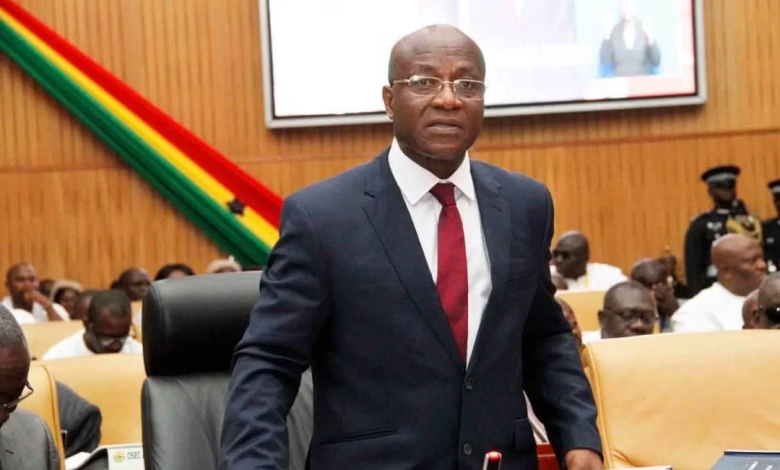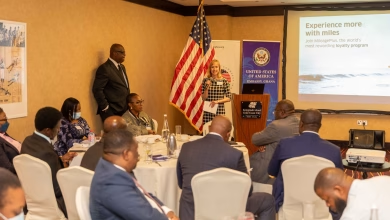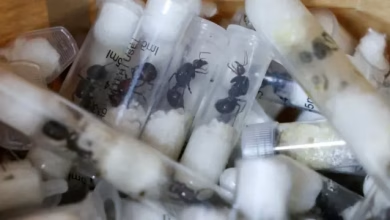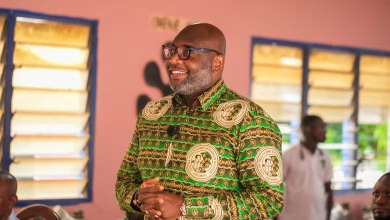If elections were in August 2024, Bawumia would have polled about 30% – Kyei-Mensah-Bonsu

- Bawumia’s campaign lacked enthusiasm
- Leadership and economic challenges hurt the party
- Bawumia’s future depends on regional feedback
Former Majority Leader Osei Kyei-Mensah-Bonsu has acknowledged that the campaign of NPP flagbearer Dr. Mahamudu Bawumia lacked the anticipated enthusiasm, pointing to the challenges the party faced in the 2024 elections.
In a recent interview with Nhyira FM, the chairman of the NPP’s manifesto committee reflected on findings from the Ashanti Region, analyzing the factors behind the party’s significant loss in last year’s election.
Kyei-Mensah-Bonsu observed that in previous elections, large crowds would gather in cities and towns to show their support, but this was notably absent in 2024.
“I began seeing early signs that the election would not be easy, but we still hoped for a better result. The December timing of the elections allowed us to regain some support,” he said. “Had the elections been held in August, Dr. Bawumia would have likely received around 30% of the vote against John Mahama, due to the severe economic hardships at that time. However, conditions, including the economic situation, improved as we got closer to the election.”
In the end, Dr. Bawumia garnered 4,877,611 votes (41.75%), while his main rival, John Mahama, received 6,591,790 votes (56.42%).
Findings from the Ashanti Region highlighted key factors contributing to the NPP’s defeat, such as the party’s internal delegate system for selecting leaders, which hindered grassroots mobilization, and the economic hardships that eroded public trust in the party.
Kyei-Mensah-Bonsu also mentioned that President Akufo-Addo had been warned in 2017 by Asantehene Otumfuo Osei Tutu II about the dangers of allowing Ghanaians to become “hungry and angry.” He noted that this warning was disregarded, and the economic struggles that followed—largely due to the impacts of COVID-19 and the Russia-Ukraine war—negatively affected the party’s prospects.
Other issues included widespread perceptions of corruption, concerns over President Akufo-Addo’s leadership style, which was viewed as rigid and single-minded, and accusations that the government was excessively influenced by the president’s family. There were also concerns about Dr. Bawumia being too closely associated with the president, as well as his ethnic background as a Mamprusi, which linked him to conflicts in the North, particularly in Bawku.
Another issue was the perception that the Ashanti Region, a traditional stronghold for the NPP, had been neglected in terms of infrastructure development, leading to a disconnect between the regional and constituency levels of the party.
Despite these challenges, Kyei-Mensah-Bonsu emphasized that many NPP supporters were open about their concerns and indicated they would return if necessary changes were made within the party.
Regarding the future leadership of the NPP, he stated that while former President Akufo-Addo is no longer the party leader, any future flagbearer would need to build on his legacy.
As for whether Dr. Bawumia should remain the party’s flagbearer, Kyei-Mensah-Bonsu said the decision would depend on feedback from the other 15 regions. “So far, respondents in the Ashanti Region have said the loss was not due to Bawumia’s religion or ethnicity. We are still awaiting input from the other regions, and their consensus will guide our decision moving forward.”
On Dr. Matthew Opoku-Prempeh’s selection as Bawumia’s running mate, Kyei-Mensah-Bonsu explained that while many had urged him to take the position, he declined. He noted that Dr. Bawumia preferred a running mate from the Ashanti Region with parliamentary experience, making Opoku-Prempeh a strategic choice.
“Napo is an experienced MP, and his age made him a viable successor should Dr. Bawumia complete two terms. His selection was also aimed at bridging the divide within the party between the Kufuor/Kyerematen and Akufo-Addo/Adu Boahen factions. While there were expectations that he would energize the youth vote, that did not materialize.”
Ultimately, Kyei-Mensah-Bonsu concluded that the future of Dr. Bawumia as the party’s flagbearer and his choice of running mate would depend on the findings from the remaining regions.






